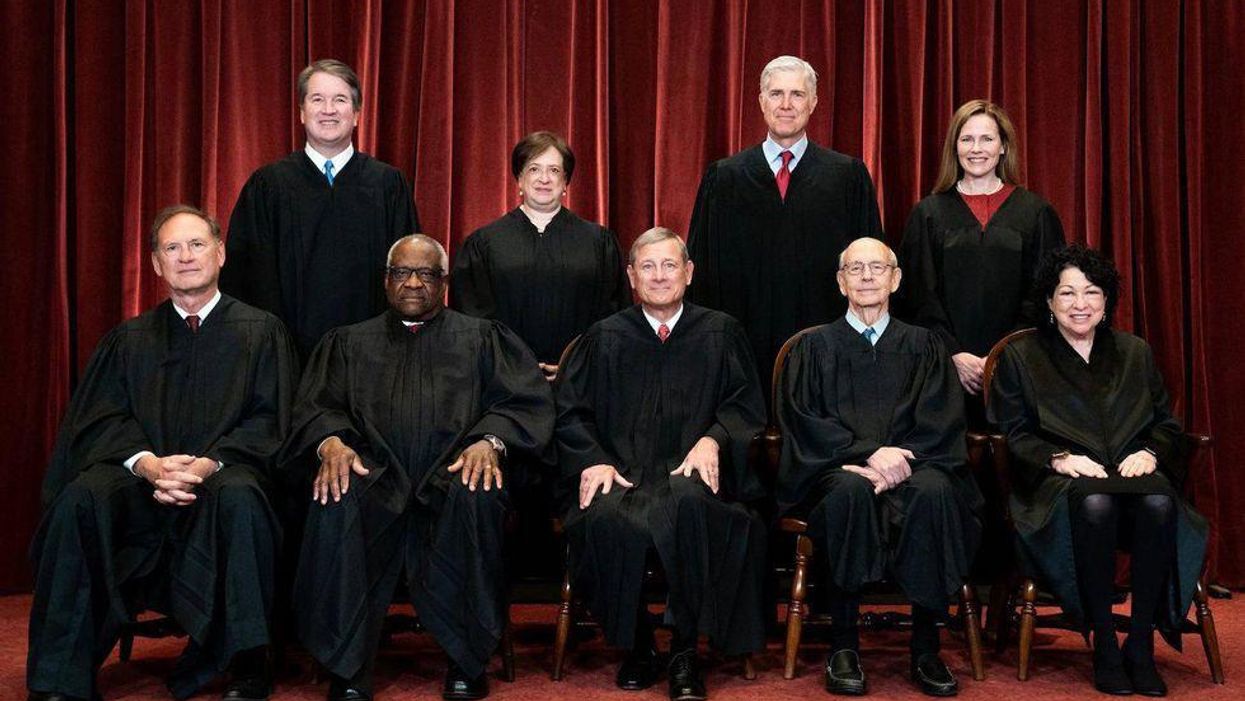Is the Supreme Court coming for our Miranda rights?


The United States Supreme Court is expected to deliver a ruling this month that could seismically upend the nature of due process for Americans.
Arguments in the case, Vega versus Tekoh, were heard in April, and center upon "whether a plaintiff may state a claim for relief against a law enforcement officer under 42 U.S.C. § 1983 based simply on an officer’s failure to provide the warnings prescribed in Miranda v. Arizona," according to SCOTUSblog.
Below is some background, courtesy of the American Civil Liberties Union:
Petitioner Carlos Vega, a Los Angeles County sheriff’s deputy, was investigating an alleged sexual assault against an immobilized female patient at a local hospital. After the patient identified Respondent Terence Tekoh as the perpetrator, Vega questioned Tekoh at the hospital and received his signed confession to the assault. During Tekoh’s state criminal proceedings, two judges concluded that the confession was admissible at trial—even though Vega had not given Tekoh a Miranda warning—because Tekoh was not in custody when the questioning occurred. In Tekoh’s criminal trial, after hearing testimony from Tekoh and his co-workers that contradicted Vega’s account, along with expert testimony on coercive interrogation practices, the criminal jury acquitted him.
Tekoh subsequently sued Vega – twice – claiming that his interrogation was unconstitutional. And then, per the ACLU:
After two civil trials, the jury found for Vega, including on Tekoh’s claim for a violation of his Fifth Amendment right against self-incrimination. Tekoh appealed, and the Ninth Circuit reversed, holding that Tekoh was entitled to a jury instruction that the introduction of his unwarned statement at trial could give rise to a Miranda violation, and remanding for a new trial. The Supreme Court granted cert in January 2022 and held oral argument on April 20, 2022. The ACLU filed an amicus brief, joined by the Cato Institute, in support of Tekoh.
That brings us to the current case before SCOTUS.
Jorge Xavier Camacho, a Clinical Lecturer in Law and Policing and the Law and Policy Director of the Justice Collaboratory at Yale University, expanded upon the matter in an editorial in The Hill on Thursday.
"Vega asks whether a person’s federal constitutional rights are violated if a police officer fails to inform them of their rights to remain silent, to be represented by an attorney, and to be protected against self-incrimination whenever the person is subjected to a custodial interrogation by the police," Camacho wrote. "These warnings, known as Miranda warnings after the 1966 Supreme Court case that first prescribed them, have become critical protections against coercive police interrogations and are routinely recited by officers whenever they make arrests or question suspects in custody."
Camacho believes that SCOTUS is ready to reverse Miranda's precedent. So if the 6-3 majority right-wing Court continues its pattern of undoing established precedent, then individuals who are placed under arrest will no longer enjoy Miranda protections. And that has enormous implications for the future of due process.
First, as Camacho explained, a reversal of Miranda would return to the states the power to choose whether police should be required to read suspects their rights upon arrest.
Consequently, state legislatures "can decide to enact laws that mirror the original Miranda decision or vote to overrule any state high court that already does so, freeing themselves to reshape one of policing’s most central restrictions," Camacho noted.
Second, Camacho added, is that "too many states and towns are ill prepared to take on the responsibility of regulating policing, having long preferred to defer the task to the Supreme Court. Local and state policymaking needs to adapt quickly to this new reality by enacting three critical policies."
He offered three critical suggestions to mitigate those fundamental problems.
Number one is for states to return policing power to local jurisdictions.
"They can do this by enacting new laws and state constitutional amendments that guarantee local freedom from state preemption on matters of policing and public safety, reserving the state’s role primarily to one that considers and establishes statewide standards for policing," Camacho said.
Number two is to hastily expand access to digital police data.
"The rapid digitization of policing data in recent years permits police departments to economically track and store substantial repositories of information. However, these data remain largely out of public reach despite their significant potential for improving how law enforcement agencies function at both the departmental and officer levels," Camacho stated. "Collecting, compiling, and publicly disclosing these data directly at the source could permit researchers to both identify new trends and track and revisit old ones to ensure their continued validity, providing policymakers with crucial information on how to shape policing policy."
Number three, Camacho elaborated, is that "states must take seriously their responsibility to establish statewide minimum standards for policing. This is crucial for improving policing across a state rather than leaving the adoption of best practices to the discretion of individual local departments."
Camacho stressed that Police Officer Standards and Training councils, or POSTs, are the best tools that states have in ensuring that law enforcement does not abuse its authority.
POSTS, he said, can "enact standards for use of force by officers, decertify officers for egregious misconduct, and deem departments ineligible for discretionary state funding for failing to abide by statewide training standards for officers. They can also revive any federal constitutional minimum standard that is disavowed by the Supreme Court, including those at risk in Vega."
Camacho thusly concluded that "regardless of whether states are ready, they will soon have the power to manage and reform policing more than ever" if the Court guts Miranda. "Now is the time to enact realistic and achievable policy changes—and to fulfill a responsibility they have too long neglected."